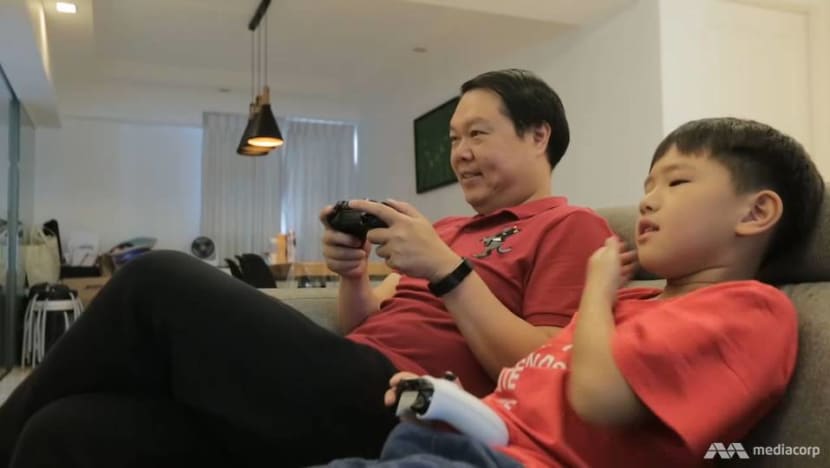Parents know best, or do they? In today’s Asia, the dilemmas of overparenting
The end goal is successful children. But trying to give them a head start in life can be a struggle in a fast-changing, competitive world, as the series The Family Affair discovers.
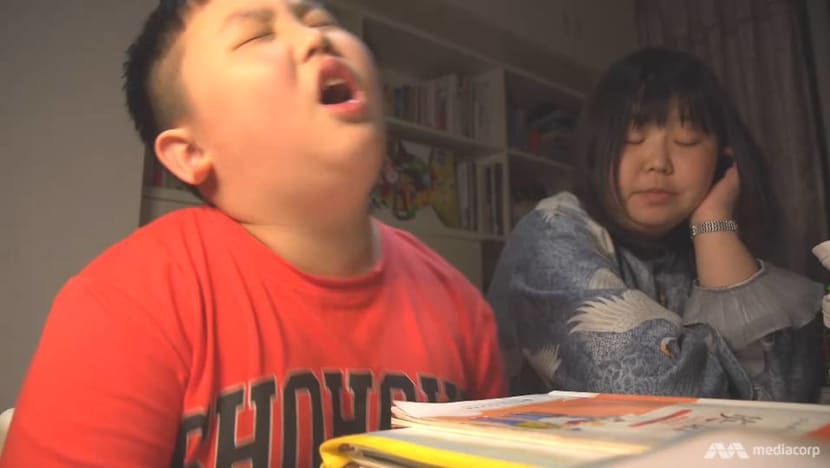
Wen Zi Xu's Chinese language — and mum's close supervision — is taking a toll on him.
SINGAPORE: His mid-term tests were coming up, and Wen Zi Xu’s mother wanted to know what scores her 11-year-old would try to get.
His aim: 100 marks for English; 95 and above for mathematics; and above 80 for Chinese, his weakest subject. But she had two words for him about his last target: “Not enough.”
The boy replied in consternation: “If I promise 85, you’d blame me if I can’t reach it. Can’t we go slowly?”
Welcome to the world of parenting. Or is it overparenting?
The Wen family hail from Chengdu, China. And mum Feng Jie knows of parents who “won’t tolerate even one mistake in exams”. She said: “They demand 100 marks. Some even beat their kids if they don’t achieve that.”
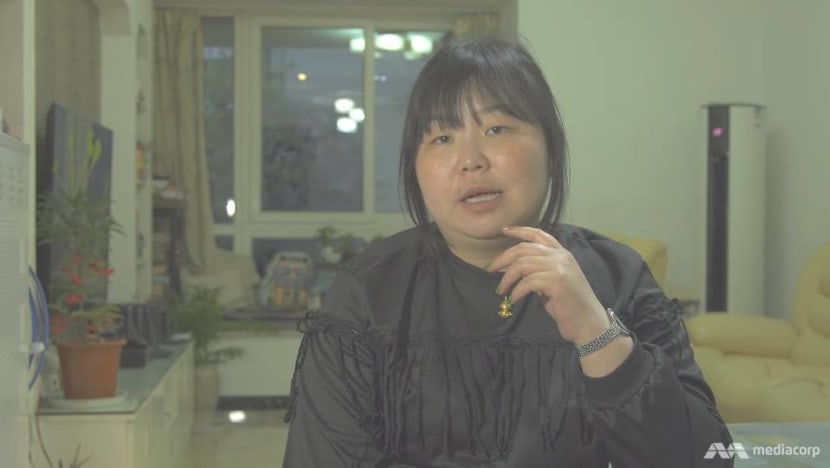
It is not just Chinese parents who are stuck in a rat race. In fast-changing times across Asia, parents are grappling more than ever with an age-old question: How can they set their children up for success?
By monitoring their studies 24-7? By cultivating their business smarts? Or by exposing them to coding so that they will have a place in the future job market?
READ: Coding classes for primary school pupils to be rolled out next year
To find out how far some parents are willing to go to see their children fulfil their hopes and rise above the competition, the series The Family Affair followed five families — from China, India, the Philippines, Singapore and South Korea. (Watch the series here.)

Their dilemmas are ones that many parents face: How to determine what is best for children when the future is anyone’s guess? And when children are not mature enough to decide what to do, whose dream should it be anyway?
PASSION VERSUS GRADES
In the case of Zi Xu, his parents have been hothousing him since he was born. Before he was a year old, he started learning swimming. Before he turned three, he started learning English.
From three to six years old, he learnt to play the piano. In sports, he has been playing baseball “for a long time”, said his mother. And in third grade, he started coding and learning creative technology like 3-D modelling.
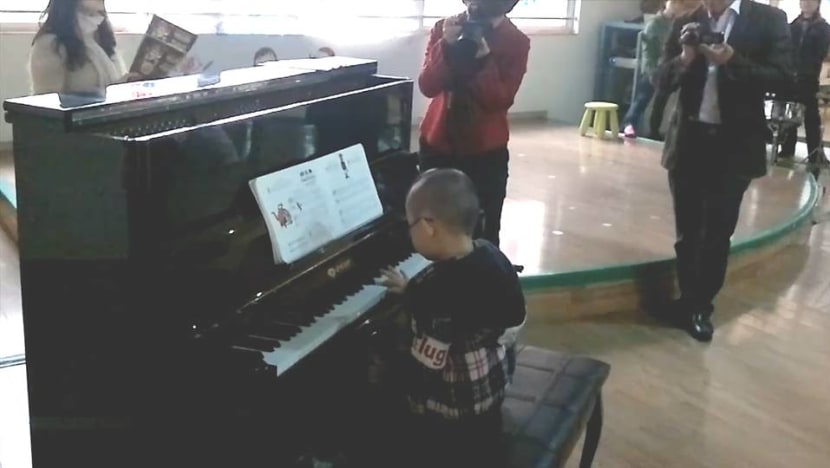
His parents have spent about RMB1 million (S$197,000) on just his educational activities.
“My intention was to cast a wide net when he was young, so as to find key talents to develop,” explained Feng. “Early education is a form of investment.”
The only child knows that “everyone is fussing” over him. “Everyone hopes to make me the best,” he said.
My father once said that if he didn’t invest so much money in me, we’d definitely be staying in a mansion and driving a luxury car.
His father Wen Ju, who is in the business of online advertising, wants him to go into the tech sector, believing that artificial intelligence will replace jobs “in the near future”.
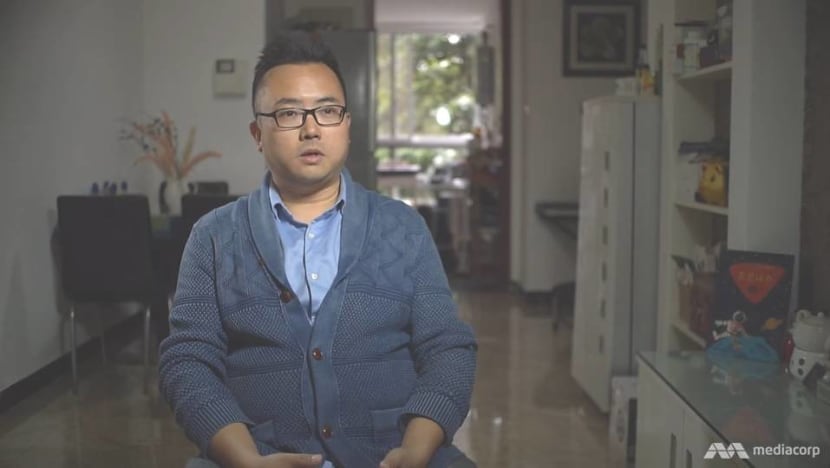
“I’m guiding my son towards creative technology. I feel that this has to be done as soon as possible. If he starts late, he may not catch up with the changing times and the pace of development,” said the 41-year-old.
That is where Zi Xu’s interest lies too. Since he was eight, he has spent about 10 hours a week in technology-related classes. Grandmother Xiang Kai Rong said proudly: “He’s taken part in many competitions and won an award every time.”
He himself is proud of the inventions he constructs using his 3-D printer, such as toy swords he sold to schoolmates.
But what happens when his mother — unhappy with how much time he spends on his hobby at the expense of his schoolwork — stops his creative technology classes because his primary school leaving examinations are drawing closer?
WATCH: Which parenting style is best? Passion vs grades (4:29)
“Gaining entry into the right middle school is getting more important. Having good grades is getting more important,” she reasoned.
It is something his parents cannot agree on in today’s competitive world, with one parent wanting a more relaxed pace for him, and the other filling his time with more Chinese tuition, including on Sundays.
His father thinks that “at this stage, grades aren’t that crucial”, telling his wife: “In future, he may not get to be among the top of his class. But he can play on his strengths to gain a competitive advantage.”
But she believes she is “only stating the cruel reality” and that there should be “no excuses” for their son. “Every child starts at the same starting line,” she said. “Every child has the same amount of time.
“Our boy isn’t working hard enough. Just compare him to other kids (who) are studying hard every day … seizing every moment.”
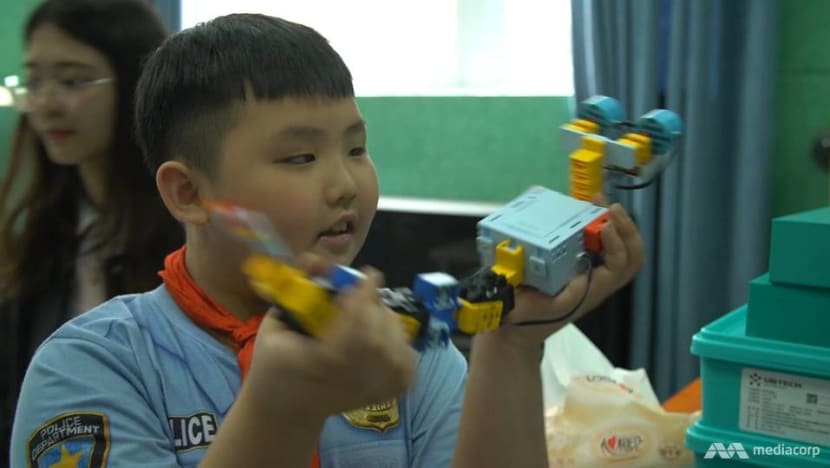
When his Chinese scores slipped below 80, however — his father’s baseline expectation — even Wen began to wonder if his wife had been right all along, fearing that his son would “give up”, which would “spell trouble”.
One thing was clear: Zi Xu was getting tired, and acting up because of that. “I may look lively and happy. But inside, I’m feeling the pressure from school and other stresses. It’s making me very unsettled,” he confessed.
BALANCING PLAY WITH STUDIES
Over in Singapore, nine-year-old Keane Yap knows what it is like to have a packed schedule. But it is what he wants in order to be in Band One in class and to achieve his ambition to become a celebrity.

Make that a “triple-threat” celebrity, who can sing, dance and act.
So his weekdays look something like this: Wushu on Monday; mathematics tuition and one-to-one acting class on Tuesday; one-to-one speech class and one-to-one vocal solo training on Wednesday; Chinese tuition and swimming lessons on Thursday; and vocal duet on Friday.
His mother Celine Yap, an event planner at work, has devoted herself at home to planning for his future since he was five years old.
Taking his ambition seriously, she plays the role of talent manager and “Uber driver”, helping to build up his portfolio and sending him to an array of photo shoots and fashion shows.
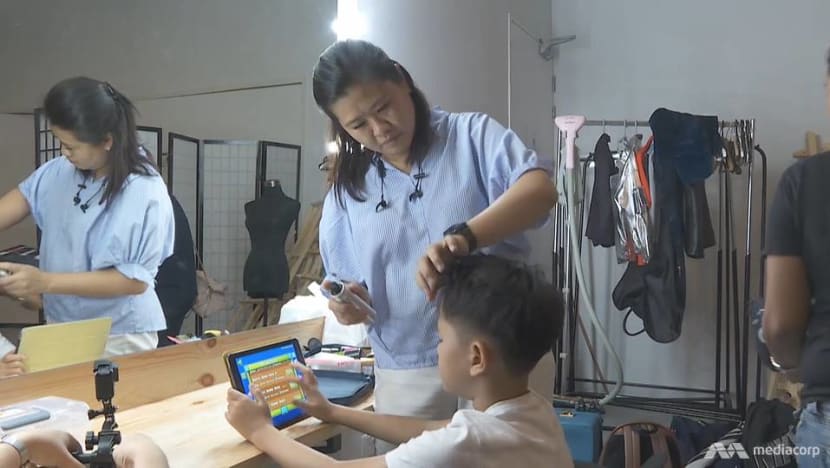
He has already acted in more than 35 projects, from commercials to dramas like Lion Mums, and has racked up awards in international singing competitions like the Hong Kong International Music Festival.
All in all, the family spends more than S$2,000 a month on his lessons. Yap considers this an “important” investment, and also tried to groom her elder child Dawn for singing stardom when she was younger.
“Competitions serve as a platform for building their confidence,” said the 47-year-old. “I want them to have no stage fright, and enjoy performing on stage. Those are the soft skills that I’m looking at.”
As a self-motivated child, Keane also wants to do well at school. After he once scored 80 in English, he asked for tuition in the subject. “My class is full of … smart people,” explained the Primary Four pupil.
Most of them are (scoring) 85 to 100. That’s Band One.
While not wanting any let-up in his performing arts activities, however, what happens when he gets a class paper all wrong? A five-hour quota on his game time each week, imposed by dad Alex Yap, the one who monitors the children’s studies.
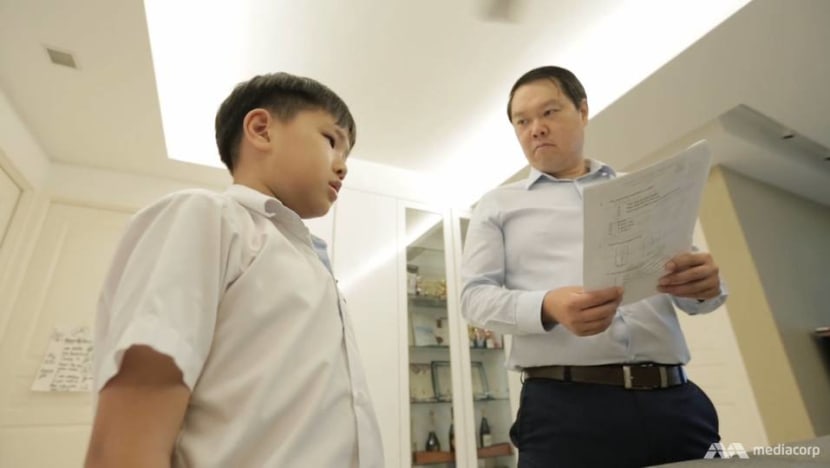
“Kids follow certain rules. So the underlying objective is that we don’t want to make it too extreme. And the last thing we want to do is let the kids get hurt,” reasoned the foreign exchange trader.
But it was enough to reduce Keane to tears. “That means I can (only) play one game (a day),” wailed the boy, who has a Nintendo Switch console and an X-box that is shared with his sister.
Normally, his mother does not disturb him when he is playing, until it is time to sleep at 9pm. But he sometimes stretches playtime to 11pm, which is “a bit too much”, she admitted.
“I want to stop him from being addicted, but I don’t want to paralyse him totally. I think he's afraid that he’ll end up with no time to play, because his dad really (goes) by the rules,” she said.
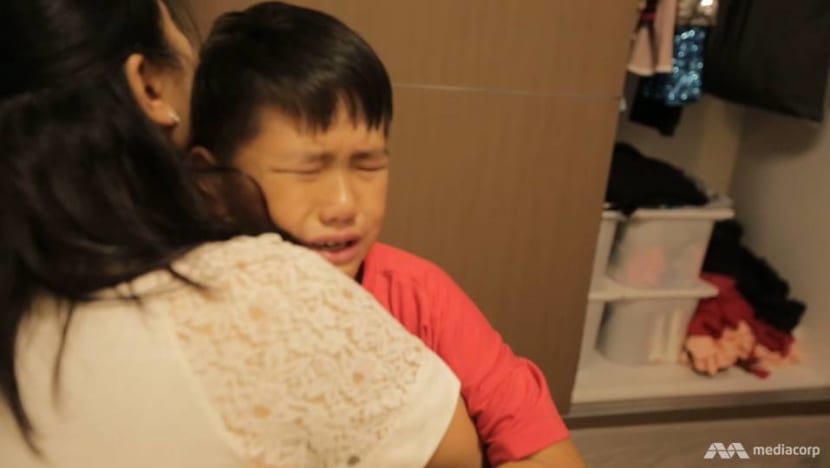
Enforcing the new rule was not so easy, however, leading to a tantrum once. “(Parents) don’t play the game, so they don’t understand,” an exasperated Keane said.
“They were born in 19-something when there was no technology. They played Five Stones and all those normal games … Once they understand the game, they’d know when to ask me to stop.
“Then I’d follow them. Then it would make much more sense.”
BUSINESS SMARTS OR HIGHER LEARNING?
Getting children to follow instructions is one thing — in South Korea, dad Song Doo-hak wants his children to follow in his footsteps too.

The 36-year-old is a self-made millionaire and the nation’s youngest head of a merchants’ association, at the Pyeongtaek International Central Market. He also owns 10 commercial properties.
His success all started with a burger shop he opened in 2007, which his family now helps to run.
Middle child Eun-ji, 16, and her 20-year-old sister Yeon-ji, who was once regarded as a prodigy at school, have been helping at the shop since young.
“When I was a second-grader in middle school, the burger shop became extremely busy … I spent more time working at the shop than studying. I didn’t even have time to be rebellious,” lamented the older girl.
And I can see my friends passing by. When I see them having a good time while I’m working, I also feel like hanging out with them. But I have to make hamburgers.
Song’s focus on earning money meant he had “paid little attention” to his children, he admitted. “I’ve never taken my daughters to an amusement park; instead, we were always at the burger shop.
“I can sense from my family members’ faces that they’re not happy even when we’re making money.”
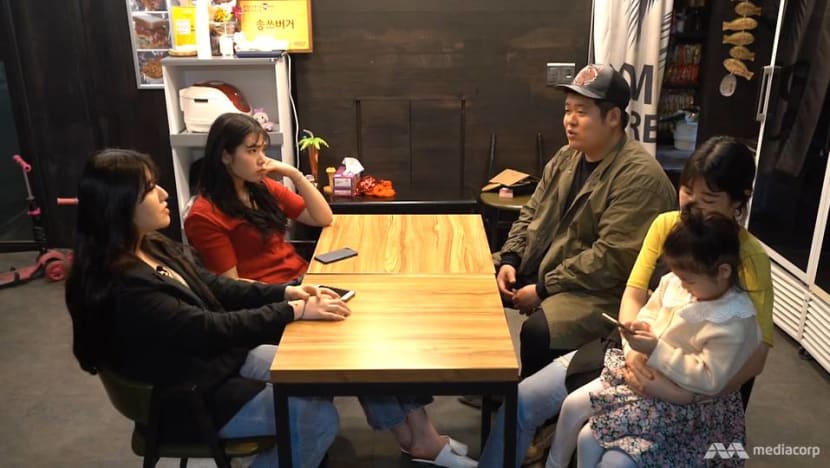
Resentment began to boil over, however, when he asked his second daughter to help out more — to help achieve his dream of earning about 30 million won (S$34,500) a month from the burger shop, on top of his property rentals.
The high school sophomore was already spending all her free time at the shop. But in the evenings, she has chosen to attend cram school because her dream — of becoming a computer graphic designer — is “more important than family”.
“I need to be able to support myself financially,” she added. “I can’t expect my parents to support me forever.”
But her father, who is not shy of disclosing that he scored 100 out of 400 in his college entrance exam, believes that “doing well at school isn’t the only way to be successful”.

“I’m trying to teach you a shortcut,” he told his family. “If we work together, there’d come a time when we’d be able to … open a shop for Yeon-ji as well as Eun-ji.”
His daughters were not the only ones who disagreed; wife Kim Mi-ok thought he was “treating them as slaves” to his dream.
“Instead of teaching them shortcuts, why don’t we prepare more options for them, so they can switch between Plan A, B, C or even D. We are their parents, and that should be our duty,” she told him.
“Even if you drag your daughters to these shortcuts, how would they know these are the right ones for them?”
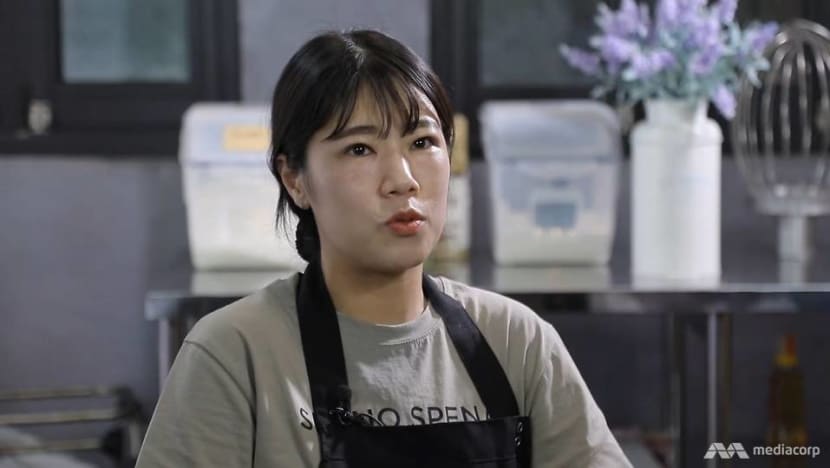
To Eun-ji, it is clear that going to university would give her more options to pursue her dream.
But it was only after a row with Yeon-ji about recalling her during a rare night off, coupled with his wife collapsing from exhaustion at work, that Song realised things needed to change, starting with hiring more manpower.
He also decided to take the family to Seoul, on their first trip together in nine years.
“About two years ago, my family was so exhausted we decided to go on a family vacation,” he shared. “But it hasn’t happened till now.”

AN ‘EPIDEMIC’
Several books refer to the phenomenon of overparenting, or hyper-parenting, as “the overscheduled child”.
“Some parents want to craft the perfect childhood, to guarantee a successful adulthood in today’s competitive world,” noted The Family Affair series producer Anna Tolentino.
It isn’t new, but it’s interesting how, years ago, this was seen as eccentric behaviour. Now, it seems to be the norm.
The trend has even been called an “epidemic”, mainly because doctors in the United States and the United Kingdom have seen “a spike in the number of children suffering from stomach ulcers and headaches due to exhaustion and stress”.
“Clearly, this issue no longer concerns only Asian parents but parents across the board,” she added.
Economic status, however, still has an impact on a child’s future. For example, the Filipino family in the documentary also wants to raise a celebrity, “but lacks the resources the Singaporean family has”.
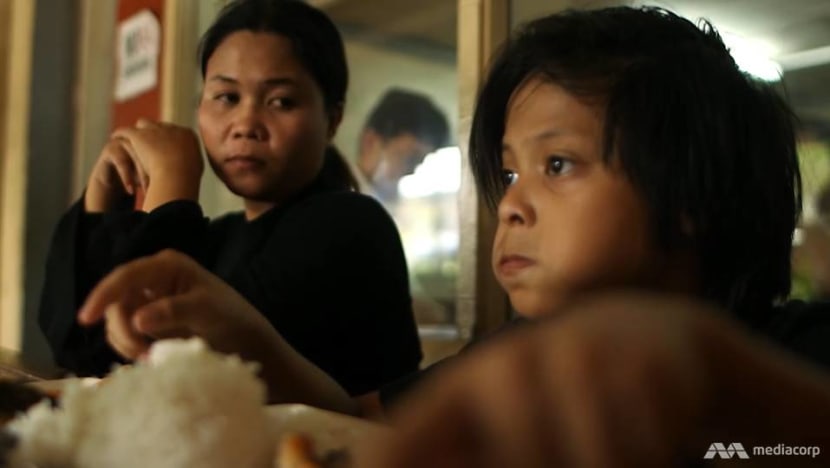
“In India, we have a single mother who has the bandwidth to see only the short term, and is asking her daughter to stop school to help earn money for the family,” Tolentino also cited.
While she saw “interesting parallels” between the parents in Singapore and China who were concerned with grades, she said the Chinese parents “took hyper-parenting to another level”.
In the end, however, some things mattered more than grades.
When Keane scored 11 out of 20 on an English composition, his schoolteacher asked why he was eight marks behind a classmate going to the same tuition centre as he was. But seeing how upset he was, his parents were nothing if not encouraging.
And after speaking with his teacher, his father said she “meant well”, by trying to “bring out that competitiveness in him” to catch up with his friends. “I’m not too worried,” he added.
“Failures are good. And to have the mindset, or the heart, to overcome failures is very important.”
Watch the series here. Or catch The Family Affair on air this month on Mondays at 9pm.
